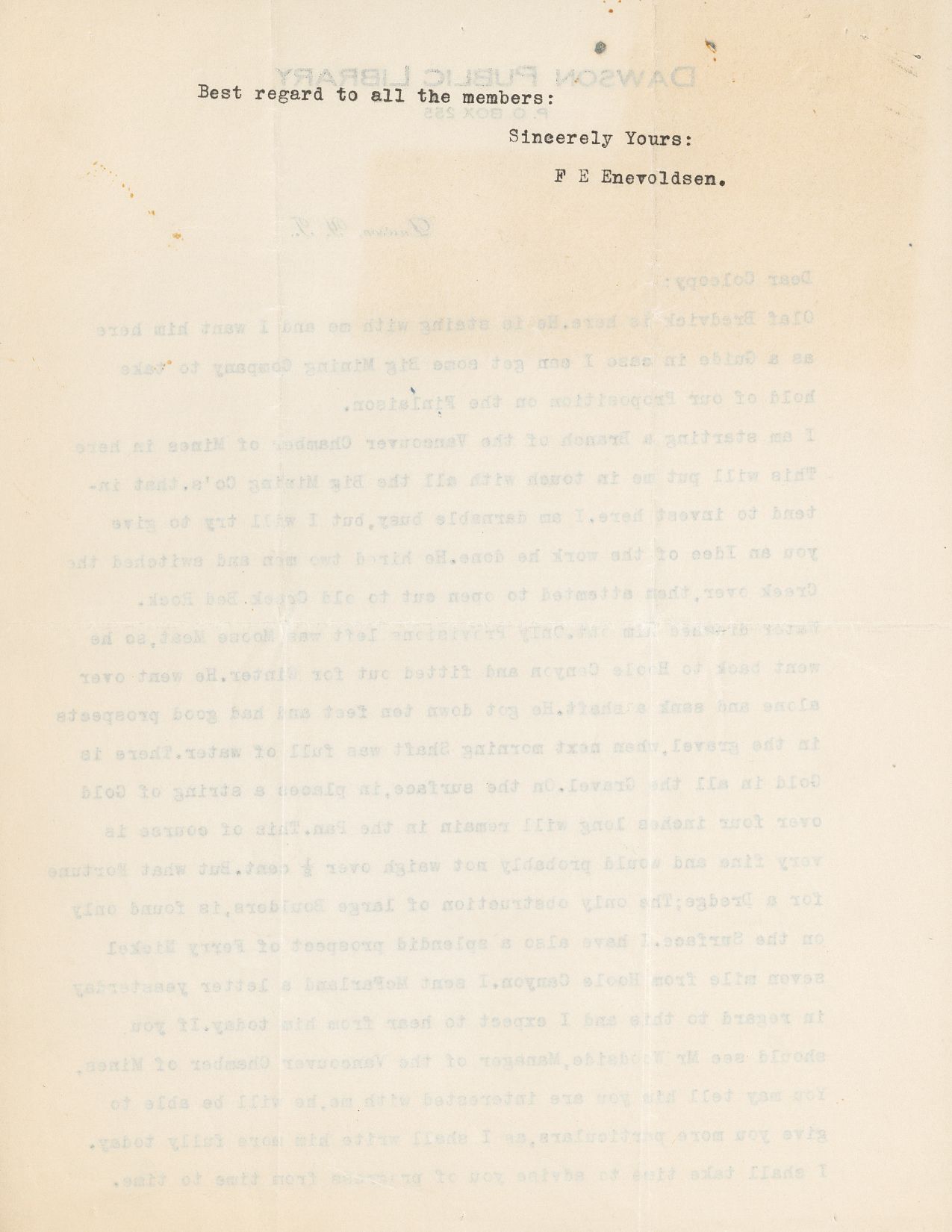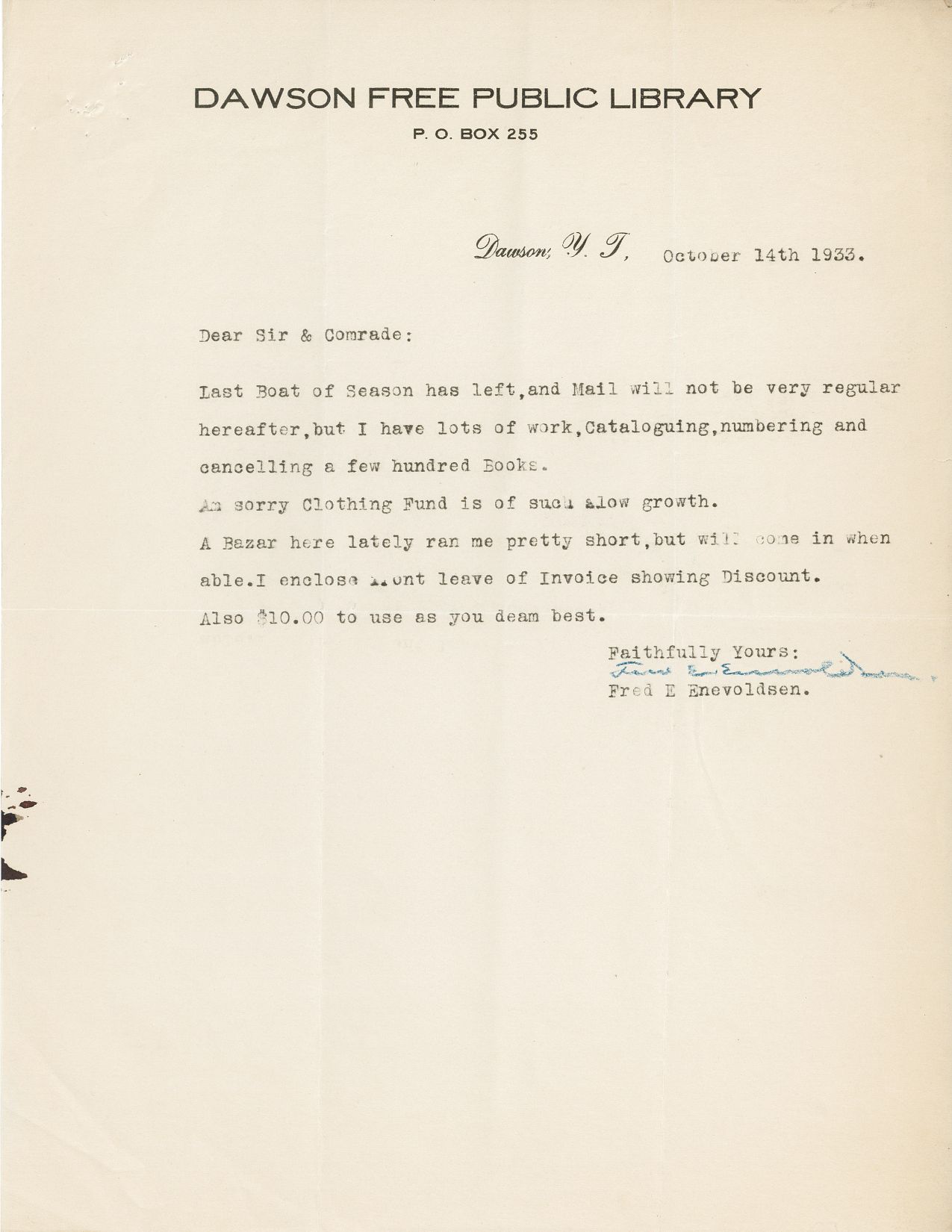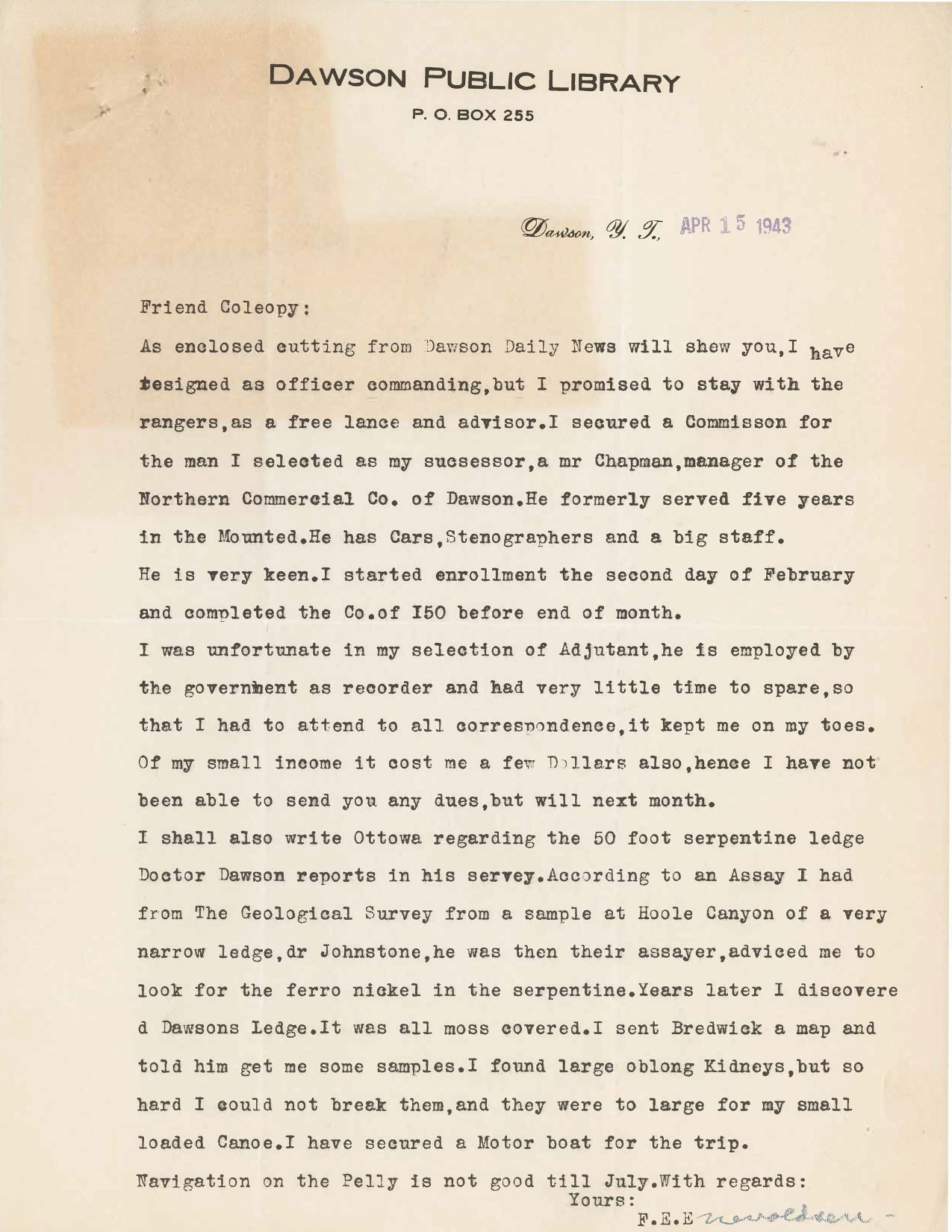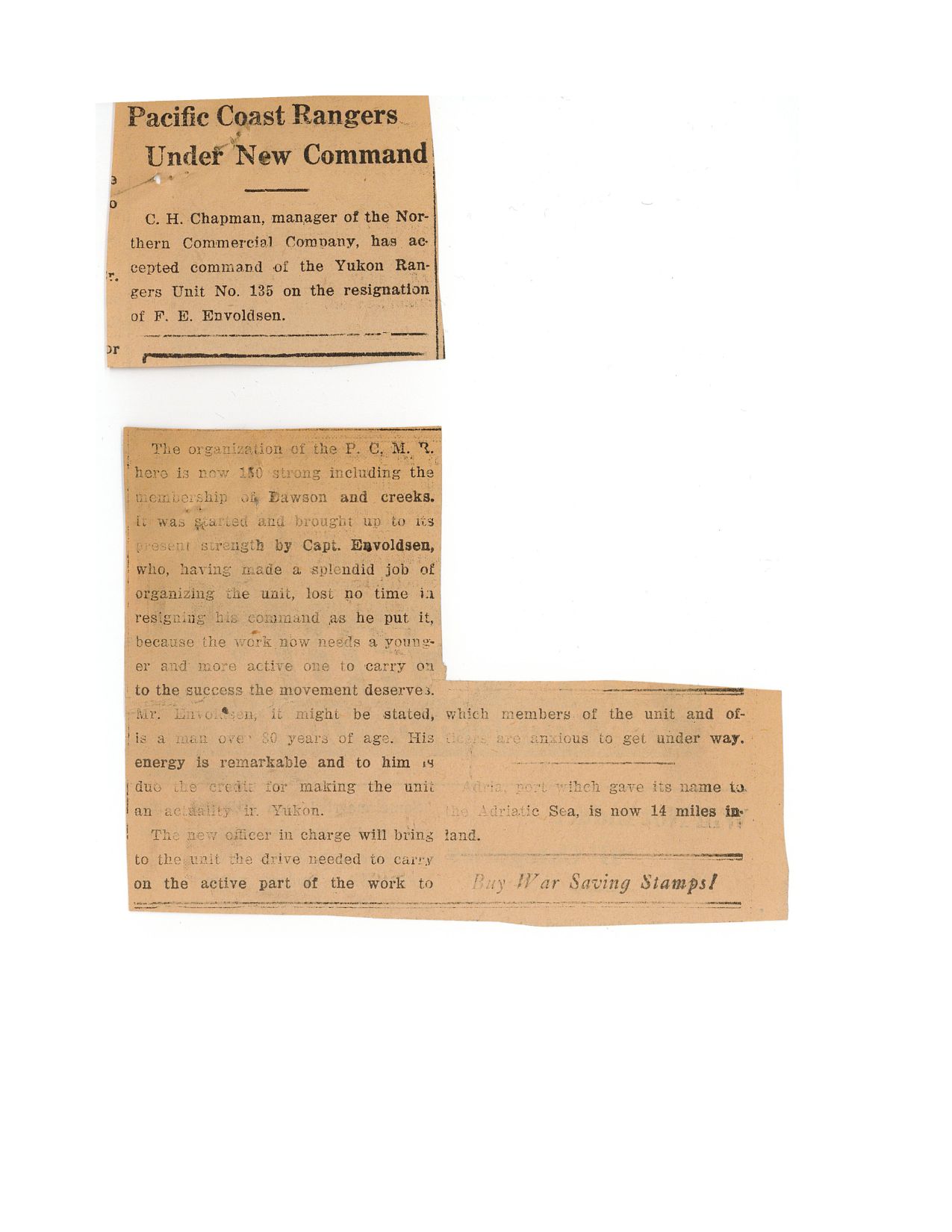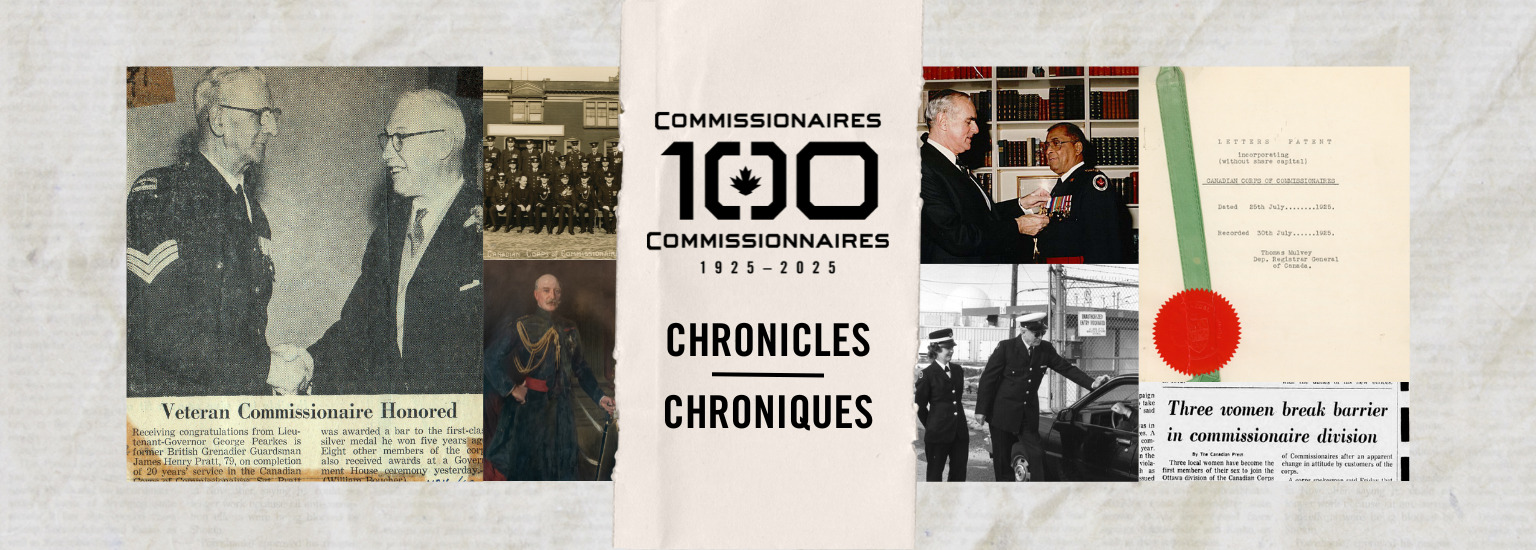May 20th, 2025
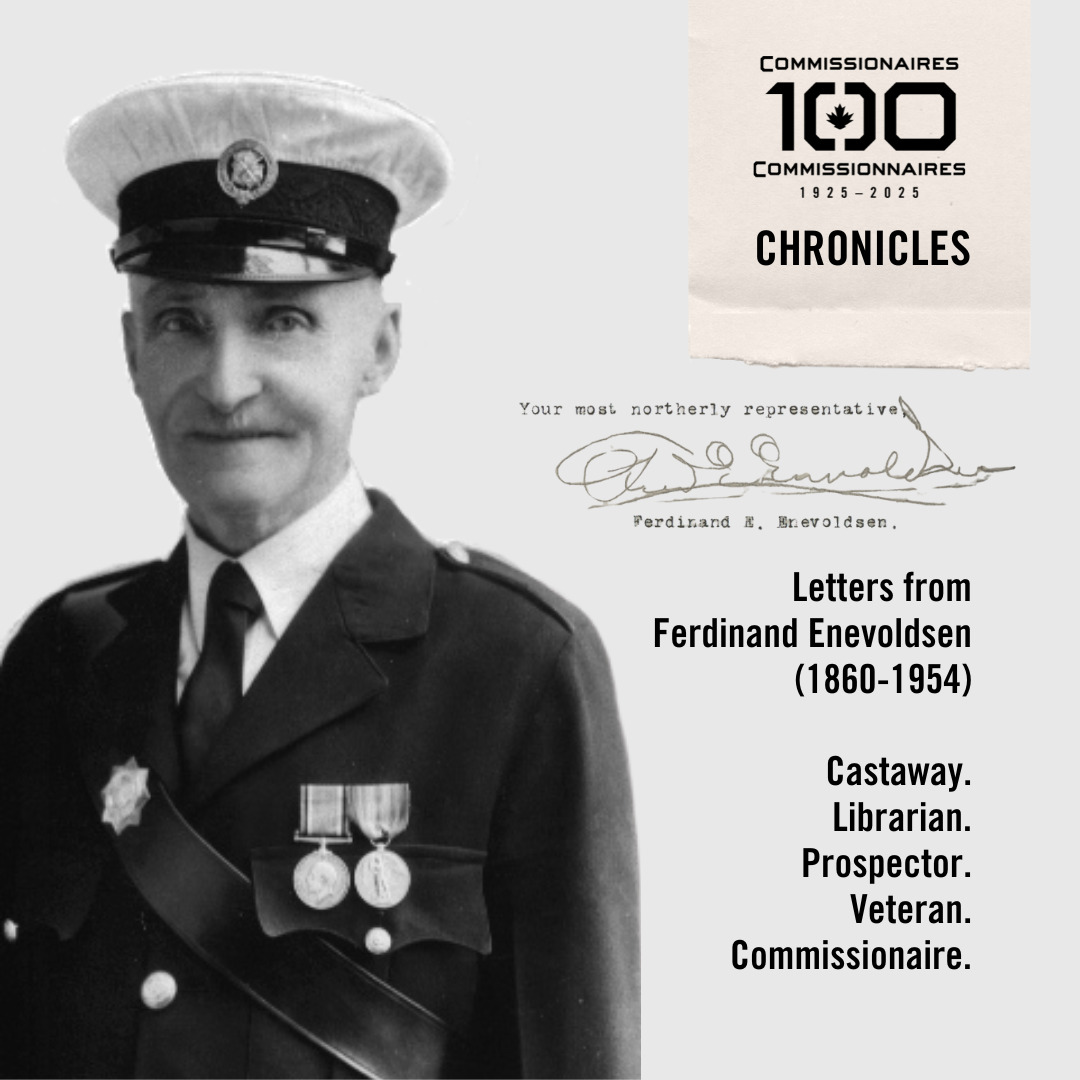
Ferdinand Enevoldsen was a remarkable figure in the history of Commissionaires. He was born in Norway on April 14, 1860, later immigrating to Canada.
In March 1917, during the First World War, at age 56, he joined the Canadian Expeditionary Force, serving as a Sapper with the 6th Battalion, Corps of Canadian Railway Troops.
10 years after returning from the war in France, Ferdinand joined the British Columbia Corps of Commissionaires at age 68, making him one of our earliest commissionaires. Though he joined later in life, Ferdinand was deeply committed, remaining with the Corps for more than 25 years.
Ferdinand truly lived a life full of adventure. One of his most captivating experiences occurred when he survived a shipwreck off the coast of India, finding himself stranded on a remote island. This event inspired him to start writing about his experiences. He maintained regular correspondence with BC Corps leadership, sharing stories of his adventures, challenges, and reflections about the world through a fascinating series of letters.
He was dedicated to life-long learning. As an avid reader, he helped build the Dawson Free Public Library in Dawson, Yukon. He even asked some of his colleagues at BC Corps to help him choose the books to fill the library.
During the Second World War, now into his 80s, Ferdinand returned to military service. He became a Captain in the Pacific Coast Rangers, a newly formed militia group that protected Canada’s west coast from a possible Japanese invasion. However, recognizing the limits of his age, he chose to step down in 1943, “because the work now needs a younger and more active one to carry on the success the movement deserves.” The modern-day Canadian Rangers can trace their heritage back to the Pacific Coast Militia Rangers.
Ferdinand also wrote about his business venture into gold prospecting, sharing many challenges he faced while in business. As a testament to his character and contributions, BC Corps supported him in continuing his prospecting operations by sending him supplies in exchange for a share of the profits; a practice known as grubstaking. Even at 94 years old, in his last letter to the Corps, he remained optimistic about the future and continued to share his thoughts on the mining industry.
He died in 1954 after a life filled with exploring, learning, and service.
Almost 100 years after he joined the Corps, we remember him through the remarkable collection of letters he wrote to BC Corps between 1929 and 1954. These letters are now part of our Digital Historical Archives and tell the story of his exciting adventures and how he saw the world changing around him.
View some of Ferdinand’s fascinating letters below:

